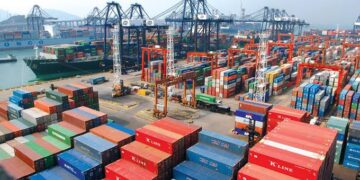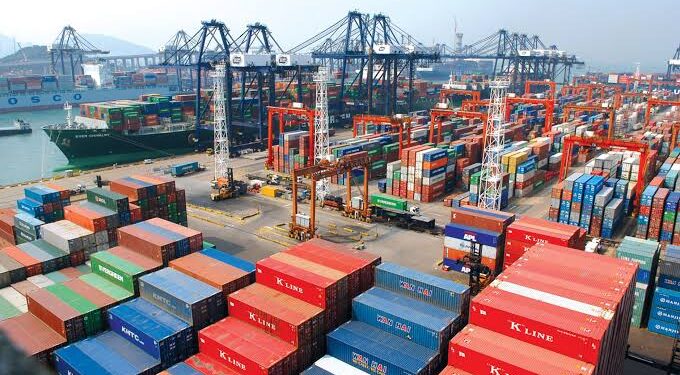The Executive Secretary of the Institute of Export Operations and Management Ofon Udofia, has decried the poor state of eastern ports, saying the Federal Government should implement the 30% rebate policy to revive the underutilized Ports.
He said the rebate would boost shipping activities in the region and enhance the local economy, warning that failure to act could cause Nigeria’s maritime economy to fall further behind as other nations progress.
Mr Udofia who made the call at the 2025 Correspondents’ Week Dinner organized by the Nigerian Union of Journalists (NUJ), Rivers State Correspondents’ Chapel, in Port Harcourt lamented the preventable state of Calabar, Rivers, Onitsha, Onne, Warri, and Koko ports, describing them as “idle assets” wasting away due to policy neglect and lack of infrastructure investment.
“For the eastern ports to work, there should be a 30 percent rebate, and you will see all the ports open. Calabar Port is like a swimming pool today, while Koko Port is a forgotten project,” he lamented.
Condemning what he described as “cosmetic approaches” to training and capacity building in the sector, Udofia criticized the practice of issuing export licenses to individuals without formal export knowledge.
“Nigeria is the only country in the world where people are given export licenses without having any knowledge of export. You don’t learn export in seminars,” he argued.
Udofia stressed that unlocking the potential of the blue economy requires strategic investments and policies that encourage trade through neglected maritime corridors.
He also challenged the University of Port Harcourt (Uniport) and other institutions in Rivers State to begin offering courses on the blue economy to position the state as a hub for maritime development.
“If you don’t act on time, others will take over. Why is Uniport not offering the blue economy as a course to make Rivers State the centre of maritime excellence?”
He further noted that Nigeria’s current university curriculum is outdated and not designed to produce entrepreneurs or solve practical problems.
“Our university curriculum is certificate-based. It was designed for people to graduate and work in the civil service—not to solve problems or create wealth,” he said.
Udofia encouraged journalists to venture into business by launching an NUJ Export Entrepreneurial Programme focused on the eastern ports, noting that their access and research skills position them well for success.
“Journalists can act as brokers by linking buyers to sellers worldwide and earn significant income. You have thinking fingers—there’s no corner in Nigeria you cannot enter and come out.
“You must wake up and export your service. When writing your stories, look around—there are many Nigerian products that are highly valued and priced abroad.”
He linked Nigeria’s persistent insecurity to mass unemployment, emphasizing that the export value chain could serve as a powerful tool for job creation and economic stability.
“Insecurity in this country is fueled by unemployment. Anyone who is gainfully employed will not engage in kidnapping or banditry. The export value chain can curb unemployment in Nigeria,” he said.















































